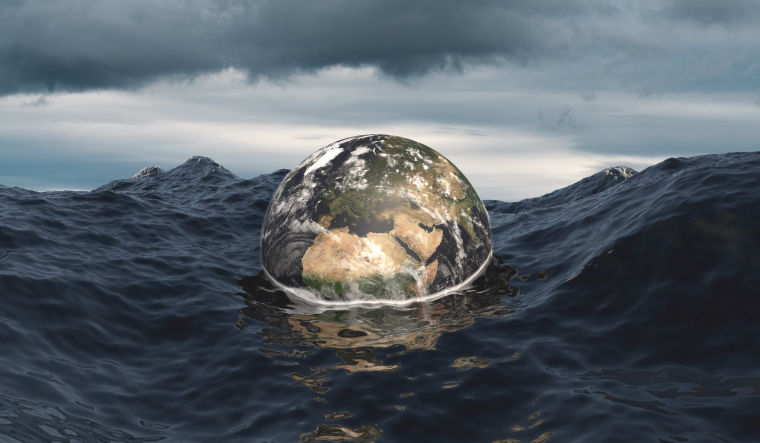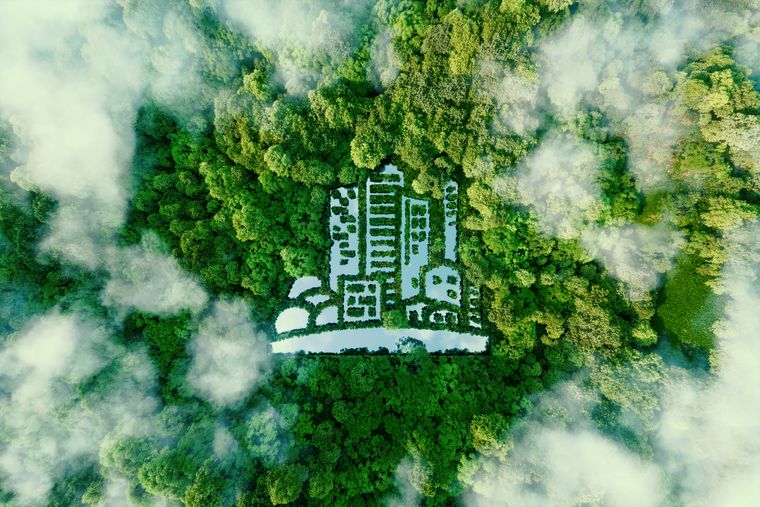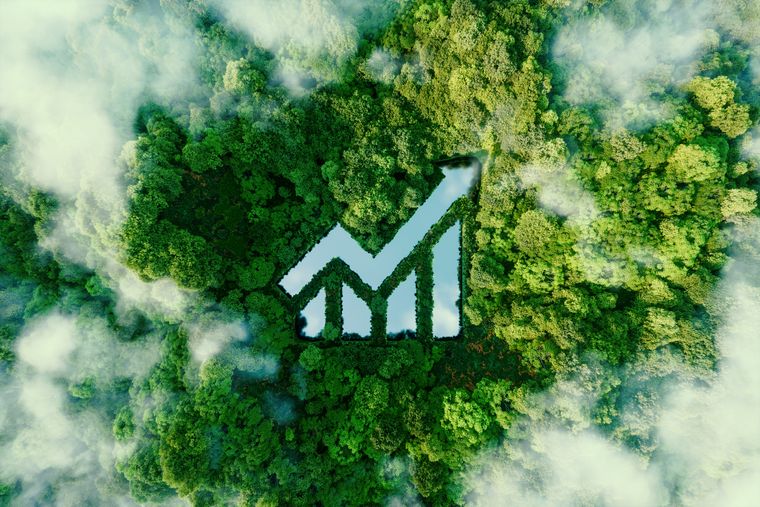Could marketeers hold the tools of influence that address climate change needs?
It’s clear that businesses and organisations around the world need to measure a different sort of success.

For many years, marketing has been primarily used as a tool to identify and stimulate ever-increasing demand for goods, often pre-empting and creating a need that brands can then step in to fill. Effective marketing and advertising has always been at the core of demand and growth creation.
The IPCC Part 2 report released in August put it like this: “we must move away from the current capitalist model to avoid surpassing planetary boundaries and climate and ecological catastrophe.” In other words, there is little or no room for further growth creation.
So where does this leave marketing?
While it’s tempting to think that a need to dial growth creation down makes our jobs as marketers redundant, I believe the opposite is true. In fact, it puts more power in our hands than ever before, and more responsibility too.
Branding, insight, and creative experts have always been, the keepers of the tools of influence – the changers of behaviour, the identifiers of emerging needs, the persuaders of new aspirational lifestyles, the creators of new languages and engaging ideas. So why not use these tools to serve us in addressing some of the emerging urgently pressing needs?
Rather than stimulating growth for growth’s sake, we could be rallying humans around the new ways of speaking, being, acting in ways that put a more sustainable future front and center, where it has always belonged.
A refocusing of our discipline away from purely driving economic growth to a new North Star is undoubtedly a big ask. But it’s entirely possible for people with our skillsets who are willing to radically innovate.
But first, like every business and human being, we can’t jump into a new ‘right’ immediately, we have to start where we are and take the next step.
Looking in the mirror
For us at Space Doctors, starting where we are meant working to achieve B Corp status for the agency. Certified B Corporations are businesses that meet the highest standards of verified social and environmental performance, public transparency, and legal accountability to balance profit and purpose.
While we’ve always championed sustainable, equitable practices, the process gave us the opportunity to evaluate ourselves from the inside out, against the rigorous triple bottom line criteria of the B Corporation Organisation.
It was a process that uncovered a lot of things about us. Some of our findings were empowering and validating – there were lots of ways we, as an agency, already practices what we preach. But some hard truths cropped up, too, resulting in difficult decisions, like refraining from working with certain sectors, and reducing something that we love – traveling around the globe. Reducing our own carbon footprint was crucial to this process.
Doing the work
But the shift to B Corp is not really a ‘sudden transformation’ or a totally new way of doing things. Lots of conscientious organisations will already be recycling and reducing waste, limiting travel, partnering with ‘green’ service providers, volunteering, and operating using a clear diversity and inclusion policy. Ultimately, B Corp status certification is just the beginning of the conversation, not a reward.
We’ve had, and continue to have, tough conversations with ourselves so that we can also have them with our clients – challenging our capabilities, our priorities, our methods, and keeping our fingers on the pulse of the emerging needs and contexts that affect our clients and the people they serve. It means finding new connections and carefully considering what we we’ve been getting right and wrong with renewed clarity.
It means replacing in-person meetings across the globe, with new, better ways of achieving the same outcomes – workshops that deliver an even greater impact than before, with zero carbon footprint. It means innovating our ideas to be able to offer a longer-term perspective on the impact of decision making, removing immediacy from results in favour of future proofing – asking and answering the question of future targets. It means identifying new models and messages that can start to change assumptions and expectations around growth and consumption.
And crucially, it means building ever-stronger rationales behind the strategies that have the potential to transform the industries we work across.
Making change
It’s clear that businesses and organisations around the world need to measure a different sort of success. A success aligned with delivery of the SDGs and the establishment of regenerative business models which provide for consumer needs which emerge through adaptation.
Then and only then can we competently help our clients adapt with similar rigour and commitment. As marketers, we have a proven history of helping people adapt – today it’s down to us to change the “why” around that adaptation – from adapting for the sake of economic growth to adapting for the sake of a healthier, more sustainable future.
If this sounds like a lot of work to get to the big, noticeable change - that’s because it is. But that’s why starting now, where you are, with your business, is the crucial way forward.
Fiona McNae
Founder and CEO at Space DoctorsFiona McNae is Co-Founder and CEO of Space Doctors, a global cultural and creative consultancy fuelled by the very best of semiotics, cultural insight and analytics. A certified B Corporation, they help organisations become more impactful, meaningful, and relevant by connecting them more deeply with culture. Their Expert Network includes some of the world’s leading semioticians, academics, design strategists, conceptual designers, anthropologists, ethnographers, data analysts and most interesting thinkers.


